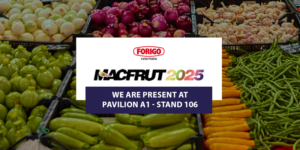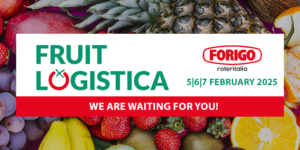News
Integrated Agriculture: sustainability at the heart of crop protection
News _ 30 NOVEMBER _2024
Integrated agriculture and integrated protection are fundamental concepts in the agricultural sector. In this article, we will explore what integrated agriculture is, the basic principles of integrated protection management and the benefits it can bring to the environment and human health. We will discover how these methods can contribute to sustainable and responsible agriculture.
What integrated agriculture is and why is important?
Integrated agriculture is an agricultural approach that aims to reconcile agricultural production with the protection of the environment and human health. It is based on a holistic management of ground, crops and animals, taking into account different aspects such as biodiversity, the nutrient cycle and the rational use of resources.
This method is distinguished from traditional conventional agriculture by the adoption of sustainable practices and the limited use of synthetic chemicals. Integrated agriculture is important because it reduces the environmental impact of farming, preserving soil fertility, improving water quality and reducing exposure to substances harmful to consumers.
The fundamental principles of integrated protection
The basic principles of integrated protection management are based on the rational use of plant protection means to protect agricultural crops. This approach involves the adoption of a series of preventive strategies, such as crop rotation, the choice of resistant varieties and the use of correct agronomic practices.
Furthermore, integrated protection management promotes the targeted and selective use of plant protection products only when strictly necessary, thereby reducing the environmental impact and the presence of chemical residues in agricultural production.
Ongoing crop surveillance and pest monitoring are other key elements of integrated pest management, enabling timely and effective action to limit crop damage.
The benefits of integrated agriculture for the environment and health
The benefits of integrated agriculture for the environment and health are numerous and significant. This cultivation method aims to reduce the use of chemical pesticides through the application of preventive strategies. This means that farmers use organic methods, such as the use of useful insects and companion plants, to control pest infestations.
This approach reduces groundwater and wildlife pollution while preserving the biodiversity and well-being of agricultural ecosystems. In addition, integrated agriculture promotes the production of healthier and safer food for consumers, as it limits the use of harmful chemicals. Therefore, this agricultural practice is crucial to ensure a healthy environment and a better quality of life for all.
Integrated agriculture is a key approach to ensuring the sustainability and health of the environment. Through the principles of integrated pest management, farmers can reduce the use of chemical pesticides, preserving biodiversity and promoting the quality of agricultural products. However, much remains to be done to promote the widespread adoption of this method.
Forigo Roter Italia supports and encourages integrated agriculture for a more sustainable future with innovative, reliable and durable tillage solutions. If we have intrigued you and you would like to ask us some more specific questions, please contact us. One of our experts will be happy to answer all your curiosities and delve into the operation of our machines together.

Research and Development Division of Forigo Roteritalia. Team of experts engaged in the study and analysis of the main agricultural and horticultural techniques used today. Knowledge combined with competence are the starting point for continuous improvement in a scenario of innovation and technological development.
Upcoming Exhibitions
Previous Exhibitions
30 MARCH 2025
Forigo at Agriumbria 2025: quality in soil preparation
07 FEBRUARY 2025
Forigo at Fruit Logistica 2025: towards more efficient agriculture













